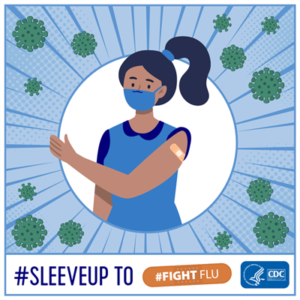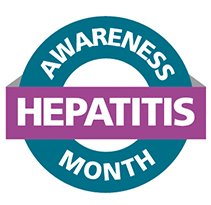 As the entire world anxiously awaits the arrival of a safe and effective vaccine for COVID-19, flu season is now upon us as well, and that means it is time to start thinking about the annual flu shot. The U.S. Centers for Disease Control and Prevention (CDC) has provided guidance for getting a flu shot during the COVID-19 crisis, and it has published a number of other resources related to the impacts of COVID-19 on the 2020-2021 flu season as well. Here are some of the highlights: Continue reading
As the entire world anxiously awaits the arrival of a safe and effective vaccine for COVID-19, flu season is now upon us as well, and that means it is time to start thinking about the annual flu shot. The U.S. Centers for Disease Control and Prevention (CDC) has provided guidance for getting a flu shot during the COVID-19 crisis, and it has published a number of other resources related to the impacts of COVID-19 on the 2020-2021 flu season as well. Here are some of the highlights: Continue reading
Tag Archives: Centers for Disease Control and Prevention
When Should Pain Go Away After a Flu Shot?
 Getting the annual flu shot provides important protection for you and those around you. The Centers for Disease Control and Prevention (CDC) says that, “[a] flu vaccine is the first and best way to reduce your chances of getting the flu and spreading it to others,” and it recommends that almost everyone six months of age and older get vaccinated against influenza each year.
Getting the annual flu shot provides important protection for you and those around you. The Centers for Disease Control and Prevention (CDC) says that, “[a] flu vaccine is the first and best way to reduce your chances of getting the flu and spreading it to others,” and it recommends that almost everyone six months of age and older get vaccinated against influenza each year.
The annual flu shot has a handful of potential side effects, but the CDC describes these side effects as “generally mild.” These side effects include, “[s]oreness, redness and/or swelling from the shot.” Continue reading
NIAID Director: 2019-2020 Flu Shot “Not a Very Good Match” for Most-Common Strain
 As the 2019-2020 flu season rolls on, the director of the National Institute of Allergy and Infectious Diseases (NIAID) has issued a warning that this year’s flu vaccine has shown limited effectiveness in fighting one of the most-common strains of the flu virus. According to CNN, NIAID director Dr. Anthony Fauci stated that this year’s flu shot, “[is] not a very good match for B/Victoria,” which has become one of the most-prevalent strains this flu season. CNN also reports that, “[c]hildren are particularly susceptible to influenza B/Victoria.” Continue reading
As the 2019-2020 flu season rolls on, the director of the National Institute of Allergy and Infectious Diseases (NIAID) has issued a warning that this year’s flu vaccine has shown limited effectiveness in fighting one of the most-common strains of the flu virus. According to CNN, NIAID director Dr. Anthony Fauci stated that this year’s flu shot, “[is] not a very good match for B/Victoria,” which has become one of the most-prevalent strains this flu season. CNN also reports that, “[c]hildren are particularly susceptible to influenza B/Victoria.” Continue reading
Flu Shot Recommendations for Pregnancy, Asthma and Other Medical Conditions
 While getting vaccinated against influenza is important for everyone, the flu shot can have particular benefits for individuals with certain health conditions. As an infectious disease specialist recently told NPR:
While getting vaccinated against influenza is important for everyone, the flu shot can have particular benefits for individuals with certain health conditions. As an infectious disease specialist recently told NPR:
“As we get older, more of us get heart disease, lung disease, diabetes, asthma. . . . Those diseases predispose us to complications of flu — pneumonia, hospitalization or death. We need to make vaccination a routine part of chronic health management.”
CDC: Infant Flu Hospitalizations are Significantly Higher than Expected
 According to recent data from the Centers for Disease Control and Prevention (CDC), infant flu hospitalizations in several countries are “at least double previous estimates.” Although the list of countries does not include the United States, the study nonetheless sheds light on some important considerations for health care providers and parents domestically. Continue reading
According to recent data from the Centers for Disease Control and Prevention (CDC), infant flu hospitalizations in several countries are “at least double previous estimates.” Although the list of countries does not include the United States, the study nonetheless sheds light on some important considerations for health care providers and parents domestically. Continue reading
When is Pain More than Just a Side Effect of a Vaccination?
 “Any vaccine can cause side effects.” While all vaccines recommended for use in the U.S. are considered safe for the vast majority of the population (with exceptions for individuals with certain medical conditions), the Centers for Disease Control and Prevention (CDC) wants vaccine recipients to be aware that certain side effects are possible.
“Any vaccine can cause side effects.” While all vaccines recommended for use in the U.S. are considered safe for the vast majority of the population (with exceptions for individuals with certain medical conditions), the Centers for Disease Control and Prevention (CDC) wants vaccine recipients to be aware that certain side effects are possible.
However, the CDC also warns that, “[a]s with any medicine, there is a very remote chance of a vaccine causing a severe allergic reaction, other serious injury, or death.” Over the past five years, an average of roughly 1,000 people have filed petitions under the National Vaccine Injury Compensation Program (VICP). So, while pain may simply be a side effect of a vaccination, it could also be a sign of a potentially-serious injury, and vaccine recipients should have an understanding of when they may need medical attention and when they may be entitled to compensation under the VICP. Continue reading
May is National Hepatitis Awareness Month
 May is National Hepatitis Awareness Month, as recognized by the Immunization Action Coalition (IAC) and the Centers for Disease Control and Prevention (CDC). This year, the CDC is encouraging individuals and families to learn more about the immunizations and treatment options for Hepatitis A and Hepatitis B, as well as the risks associated with contracting Hepatitis C from sharing needles to inject drugs. Continue reading
May is National Hepatitis Awareness Month, as recognized by the Immunization Action Coalition (IAC) and the Centers for Disease Control and Prevention (CDC). This year, the CDC is encouraging individuals and families to learn more about the immunizations and treatment options for Hepatitis A and Hepatitis B, as well as the risks associated with contracting Hepatitis C from sharing needles to inject drugs. Continue reading
FDA Approves “Six Vaccines in One”
 The Food and Drug Administration (FDA) has approved a new vaccine that is being billed as “six vaccines in one.” As reported by Forbes.com:
The Food and Drug Administration (FDA) has approved a new vaccine that is being billed as “six vaccines in one.” As reported by Forbes.com:
“[T]he hexavalent Vaxelis is designed to offer protection against six diseases and significantly reduce the number of shots you need to get as a little kid. Thus, to be fully immunized against diphtheria, tetanus, pertussis, hepatitis B, polio, and invasive haemophilus influenza type B disease, [children] will only have to get three doses of Vaxelis between… turning 6 weeks and turning 5 years old.”
FDA Approves Expanded Use of Gardasil 9 HPV Vaccine
 In late 2018, the U.S. Food and Drug Administration (FDA) announced expanded approval of the Gardasil 9 human papilloma virus (HPV) vaccine. Previously approved for administration to males and females between the ages of 9 and 26, Gardasil 9 is now an approved HPV vaccine for men and women through 45 years of age.
In late 2018, the U.S. Food and Drug Administration (FDA) announced expanded approval of the Gardasil 9 human papilloma virus (HPV) vaccine. Previously approved for administration to males and females between the ages of 9 and 26, Gardasil 9 is now an approved HPV vaccine for men and women through 45 years of age.
According to the FDA’s press release:
“[The] approval represents an important opportunity to help prevent HPV-related diseases and cancers in a broader age range. . . . The Centers for Disease Control and Prevention has stated that HPV vaccination prior to becoming infected with the HPV types covered by the vaccine has the potential to prevent more than 90 percent of these cancers, or 31,200 cases every year, from ever developing.”
CDC: Flu Shot Reduces Pregnant Women’s Risk of Hospitalization Due to Infection by 40 Percent
 The Centers for Disease Control and Prevention (CDC) recommend an annual flu shot for everyone beginning at six months of age, subject to limited exceptions for individuals who present certain risk factors. The general recommendation to get vaccinated includes women who are pregnant. According to the CDC:
The Centers for Disease Control and Prevention (CDC) recommend an annual flu shot for everyone beginning at six months of age, subject to limited exceptions for individuals who present certain risk factors. The general recommendation to get vaccinated includes women who are pregnant. According to the CDC:
“Getting a flu vaccine is the first and most important step in protecting against flu. Pregnant women should get a flu shot and not the live attenuated influenza vaccine (LAIV), also known as nasal spray flu vaccine. Flu vaccines given during pregnancy help protect both the mother and her baby from flu. Vaccination has been shown to reduce the risk of flu-associated acute respiratory infection in pregnant women by up to one-half… Pregnant women who get a flu vaccine are also helping to protect their babies from flu illness for the first several months after their birth, when they are too young to get vaccinated.”
